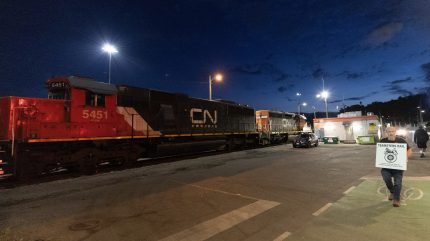
Canada’s Labour Minister has stepped in to calm an industrial dispute between the country’s main freight rail providers and their employees after talks broke down and hundreds of services were suspended.
Steven MacKinnon released a statement a day after talks between the Teamsters Canada union and Canadian National Railway (CN) and Canadian Pacific Kansas City (CPKC) broke down.
Because the minister judged the parties to be at “a fundamental impasse” he invoked Section 107 of the Canada Labour Code to begin the process of “a final binding arbitration”.
MacKinnon has tasked the Canada Industrial Relations Board with the arbitration process, and in the meantime with reasserting current collective agreements until new deals are agreed. It is hoped this will reopen rail operations and end the “lock out” of employees shortly, but no date has yet been set for the restart.
“I have also directed the Board to extend the term of the current collective agreements until new agreements have been signed, and for operations on both railways to resume forthwith”.
Although businesses have reacted positively to the government action, Paul Boucher, president of the Teamsters Canada Rail Conference, said it risked the workers’ right to “free” collective bargaining.
How well do you really know your competitors?
Access the most comprehensive Company Profiles on the market, powered by GlobalData. Save hours of research. Gain competitive edge.

Thank you!
Your download email will arrive shortly
Not ready to buy yet? Download a free sample
We are confident about the unique quality of our Company Profiles. However, we want you to make the most beneficial decision for your business, so we offer a free sample that you can download by submitting the below form
By GlobalData“[CN and CPKC are] holding the Canadian economy hostage to try and pressure the Liberal government to impose final binding arbitration and take your rights away to free collective bargaining,” he said.
The Teamsters said it would maintain its picket lines while the federal government action is assessed, and potentially as talks continue.
The Candian government is in a difficult position, stuck between respecting the industrial relations process of collective bargaining and agreements and the sensitive transport economy, worth more than $250m per day.
The minister said the livelihood of all Canadians, not just those in the transport sector, were at risk if the inaction continued for an extended period.
MacKinnon said he has been in discussion with his counterparts in the US, due to the cross-border nature of many CN/CPKC rail routes and the integrated trade between the neighbour nations.



